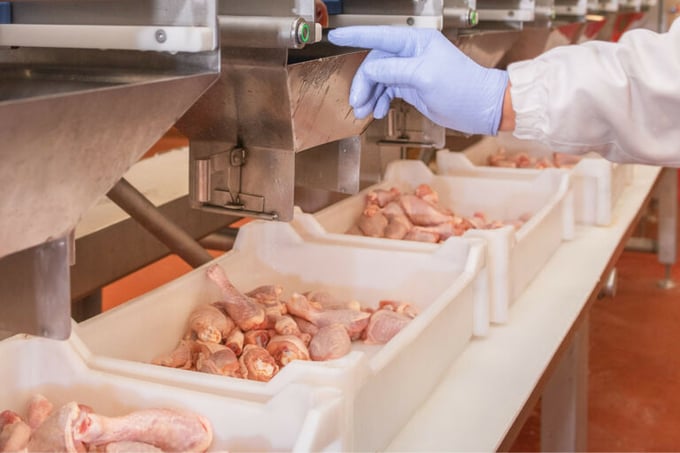May 19, 2025 | 17:37 GMT +7
May 19, 2025 | 17:37 GMT +7
Hotline: 0913.378.918
May 19, 2025 | 17:37 GMT +7
Hotline: 0913.378.918

Poland is the largest producer of poultry meat in Europe, accounting for one-fifth of the EU's total output. Photo: Canva.
The organisation said that monthly poultry production exceeded the threshold of 150 million heads during the year at least 3 times. “A few years ago, we wondered whether a monthly production record of over 100 million chickens could be maintained,” recalled Katarzyna Gawrońska, director of the National Chamber of Poultry and Feed Producers. “However, it quickly turned out that such a number of broilers produced on a monthly scale was not an exception but a rule for the industry. We can now celebrate achieving another milestone,” she added.
The industry’s growth this year has even triggered an occasional shortage of hatching eggs.
Poland is the largest producer of poultry meat in Europe, accounting for one-fifth of the EU’s total output. Spain and Germany, ranked second and third in the list of largest manufacturers, are far behind, with 13% and 14% in the EU’s poultry supply, respectively.
Mercosur is a threat
Despite the general positivity, Poland’s poultry farmers express concerns over growing dependence on foreign trade, Gawrońska said. Poland’s market can consume less than half of the broiler meat the country manufactures, meaning significant shifts in demand in other EU countries – the key sales market for Poland’s broiler meat – could be quite painful for the industry.
Against this background, Gawrońska rang the alarm bell over the looming agreement between the EU and the Mercosur countries. She noted a potential devastating impact of increased poultry meat imports from Brazil to the EU, warning that it could spell disaster for Polish poultry farms and breeders.
The proposed trade pact would allow free poultry imports from Mercosur, a bloc of Argentina, Brazil, Paraguay and Uruguay to the EU.
The looming agreement has sparked a wave of farmers’ protests in Europe over recent months, particularly in France. The protesters, mostly farmers, are concerned that the proposed trade pact, which would allow free poultry imports from Mercosur, could lead to unfair competition and a decline in the demand for locally produced poultry products.
Poland is one of the countries opposing the EU-Mercosur trade deal. Polish prime minister Donald Tusk has recently promised that his government “will not accept” the prospective free trade deal between the European Union and the Mercosur block in its current form, citing concerns of the farmers and growing food security risks.
(Poultryworld)

(VAN) On May 15, Ministry of Agriculture and Environment of Vietnam hosted the 'Connecting Vietnam - Germany agricultural, forestry and fishery trade' seminar in Berlin, Germany.

(VAN) In the face of counterfeit and imitation products, Khanh Hoa Salanganes Nest Company hopes for the prompt completion of the legal framework, strict enforcement against violations, and protection of the bird’s nest brand.

(VAN) Japan's efforts to lower the price of rice through the release of its stockpile may finally be making some progress, albeit at a snail's pace.

(VAN) U.S. tariffs are not only a 'shock', but also an opportunity for Vietnamese businesses to renew their mindset toward comprehensive development.

(VAN) As Bac Giang lychee enters the harvest season, Minister Do Duc Duy expects that the fruit will contribute greatly to agricultural exports due to standardized production and deep processing.

(VAN) Consumers have shown a preference for free-range eggs, but those farming systems are more vulnerable to biosecurity risks like bird flu.
/2025/05/09/5701-1-184335_301.jpg)
(VAN) Vietnam’s eel exports nearly doubled thanks to a mud-free farming model, opening up new prospects while still facing numerous barriers related to international standards.